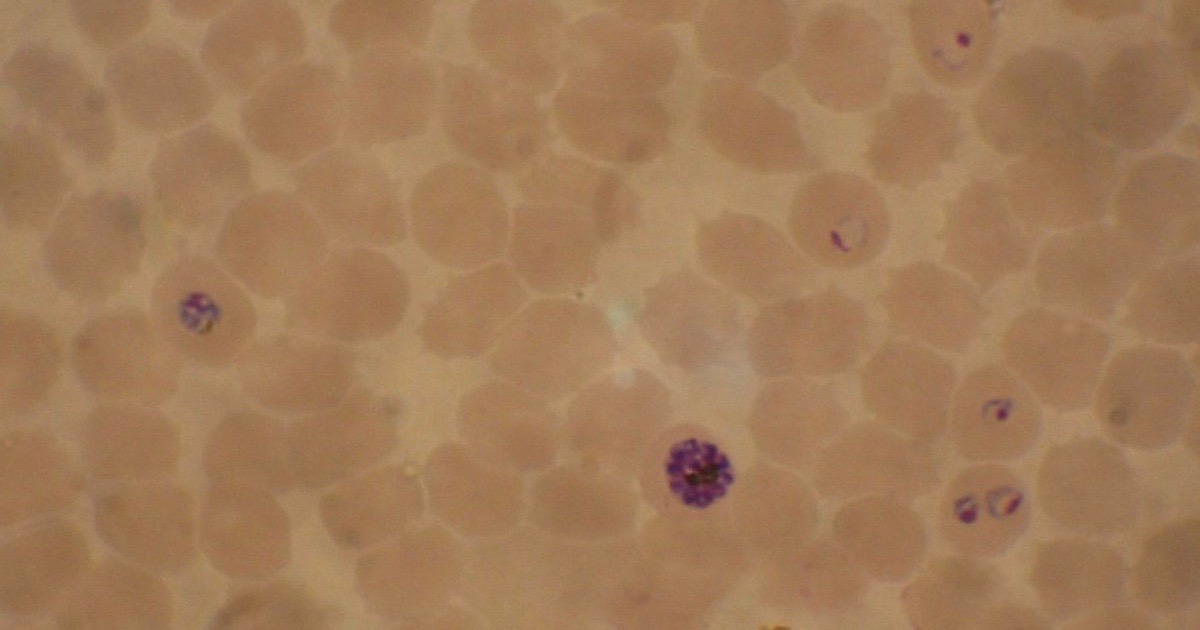 Evolution
Evolution
 Medicine
Medicine
Devolution Watch: Malaria Gnaws Off a Leg

In desperation, an animal that gets caught in a mechanical trap sometimes gnaws off its pinned limb to set itself free. The poor creature then has to live the rest of its life without the appendage, but at least it survives.
There is a plodding evolutionary analog to that urgent real-time dilemma: if some feature of a species puts it at a competitive disadvantage in its current environment, then a mutation that eliminates the feature could be selected as a way for future generations to better survive. A sad example of this is the proliferation of tuskless elephants in Africa under the pressure of illegal ivory poaching.1
A cellular/molecular example of the same phenomenon has recently been in the news.2 We humans also hunt down and kill Plasmodium falciparum, which is the single-celled parasite that causes the worst form of malaria. A person who is suspected of being infected by the malaria parasite is often screened in a clinic with a rapid diagnostic test. If the test is positive, the person is treated with anti-malarial drugs. If the test is negative, treatment is withheld.
Beneficial Loss
The most frequently used diagnostic test kit checks for the presence in the patient’s blood of either of two similar malarial proteins, called pfhrp2 or pfhrp3. A new paper in Nature Microbiology — “Plasmodium falciparum is evolving to escape malaria rapid diagnostic tests in Ethiopia” — informs us that malaria variants that have deleted the genes coding for those proteins are spreading in Ethiopia.3 Like tusks to elephants, the proteins are presumably useful to the parasite, other things being equal. But when the environment changes and the proteins become a net drawback, the quickest evolutionary solution is to get rid of them. That’s an interesting fact of biology and can be medically important. However, it’s important to note that it’s just one more example of devolution — the beneficial loss of genetic information.
It’s also important to note that devolution is not restricted to situations where humans are hunting other organisms. Rather, loss of genetic information is expected to occur in whatever situation or moment when it would be helpful. I capture this fundamental evolutionary concept in my 2019 book Darwin Devolves, as what I call the First Rule of Adaptive Evolution: Break or blunt any gene whose loss would increase the number of offspring.
References
- Maron, D. F. November 9 , 2018. Under poaching pressure, elephants are evolving to lose their tusks. National Geographic. www.nationalgeographic.com/animals/article/wildlife-watch-news-tuskless-elephants-behavior-change.
- LePage, M. 2021. Parasite evolution is making it harder to detect and treat malaria. New Scientist.www.newscientist.com/article/2291463-parasite-evolution-is-making-it-harder-to-detect-and-treat-malaria/.
- Feleke, S. M., et al. 2021. Plasmodium falciparum is evolving to escape malaria rapid diagnostic tests in Ethiopia. Nature Microbiology. www.nature.com/articles/s41564-021-00962-4.
